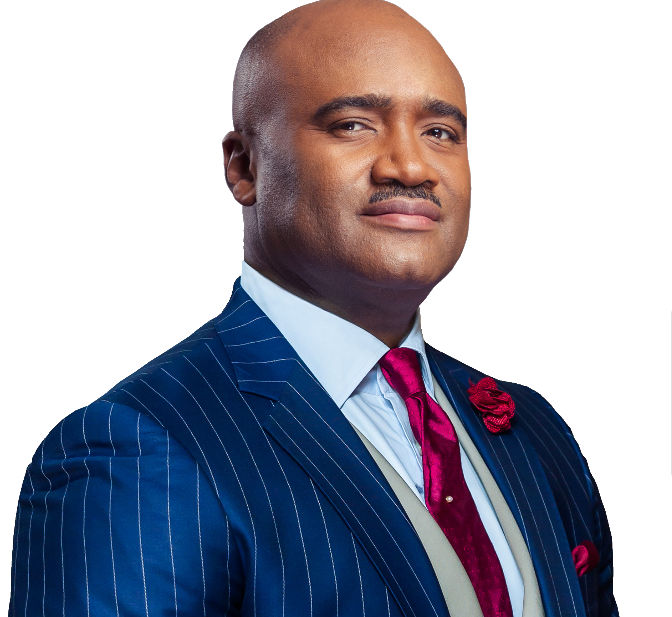
Storm Over Strobe-Light: House on the Rock Breaks Silence as Pastor Paul Adefarasin’s Detention Sparks Nationwide Reaction

In an unfolding development that has left both the religious and civic communities in Nigeria buzzing, House on the Rock Church has officially released a statement concerning the recent detention of its lead pastor, Paul Adefarasin, following a viral incident that drew the attention of law enforcement and the wider public. The statement, dated Wednesday, June 18, 2025, has quickly made its rounds across media outlets and social platforms, seeking to clarify what it calls a mischaracterization of the facts surrounding Pastor Paul’s voluntary interaction with the Lagos State Police Command.
According to the church’s statement, Pastor Adefarasin voluntarily presented himself at the police station on Tuesday, June 17, after a video clip circulated online, triggering public discourse and ultimately prompting a police response. The video in question allegedly shows the prominent clergyman in possession of a device referred to as a “strobe-light stinger,” also known in some circles as a stun gun. However, controversy erupted when the Lagos State Police, in an official tweet, described the device as a “prohibited anti-riot equipment,” insinuating that the item was illegal under Nigerian law.
The statement from House on the Rock sought to set the record straight, stating unequivocally that, based on legal consultations with top Nigerian attorneys, the categorization of the device as a “prohibited” item is “incorrect in law.” The church emphasized that Pastor Paul was detained only for a few hours and was subsequently released without charge. This clarification is crucial, as it suggests that while the matter drew significant attention, no criminal offense has, as of yet, been established.
“Pastor Paul was detained for several hours and released without charge,” the statement read. “During that time, an official police tweet mislabelled his strobe-light stinger—also known as a stun gun—as ‘prohibited anti-riot equipment.’ Leading Nigerian lawyers advise that this description is incorrect in law.”
The episode has sparked a firestorm of opinion online, with Nigerians divided over whether the possession of such a device, particularly by a religious leader of Pastor Paul’s stature, was appropriate or even legal. While some have criticized the optics of a pastor in possession of any object associated with force or crowd control, others have come to his defense, citing personal safety concerns and the increasing threats faced by public figures in the country.
The church’s media department also took a moment in the statement to reaffirm their respect for the nation’s law enforcement agencies, expressing hope that the police will continue to act with professionalism and courtesy as the investigation proceeds. “We hold the police in high esteem,” the statement noted, “and trust they will strive to act courteously and professionally, in the interest of all, while upholding the laws of the land.”
Pastor Adefarasin, a respected religious figure and founder of the House on the Rock Church, which has branches across Nigeria and abroad, has long been a voice of influence in national matters, often preaching on topics ranging from spiritual growth to social justice. This incident, however, is the first of its kind to entangle him in legal controversy—making it all the more headline-worthy.
Insiders close to the church say the pastor remains calm, collected, and cooperative, and is confident that he will be cleared of any wrongdoing once authorities have fully reviewed the facts. “Pastor Paul continues to cooperate fully with the police investigation,” the statement emphasized, “and is confident that, once the facts are reviewed, he will be exonerated of the allegation arising from the viral video.”
While there remains a legal grey area regarding the classification of non-lethal self-defense devices like stun guns in Nigeria, what is clear is that the narrative around their possession is undergoing public scrutiny. Legal experts have weighed in since the incident came to light, pointing out that Nigerian law lacks specific prohibitions against the mere possession of stun guns by civilians, though their use in certain circumstances might fall under more complex interpretations of intent or misuse.
The Lagos State Police Command, for its part, has not yet issued an updated clarification or retraction of its initial tweet, leaving many observers to wonder whether the initial characterization was an honest mistake or a premature judgment. As of the latest reports, the device remains in police custody pending further investigation, although no formal charges have been filed.
Meanwhile, reactions on social media have ranged from expressions of solidarity with the pastor to calls for transparency from both the church and law enforcement. Hashtags such as #FreePastorPaul, #HouseOnTheRock, and #StunGunSaga have trended on Nigerian Twitter, each capturing a different facet of public sentiment around the situation.
Members of House on the Rock have rallied in support of their leader, with many expressing confidence in his integrity and faith in his eventual vindication. Some notable Christian leaders across the country have also voiced support, urging calm while the process takes its course. Others, however, caution against blindly defending public figures, emphasizing the importance of accountability regardless of one’s status or religious position.
The incident has also reignited debates around the broader issue of civilian rights to self-defense tools, especially in a country grappling with issues of personal security. Many public commentators are now calling on lawmakers to either clarify or reform legislation around non-lethal defense equipment to avoid future ambiguity that could lead to more high-profile misunderstandings.
As of now, Pastor Adefarasin has yet to make a personal public statement on the incident, instead allowing the church’s media department to speak on his behalf. However, there is speculation that he may address the congregation and the wider public during his next sermon or through a special broadcast, which will likely draw massive attention given the current climate.
In a nation where religious figures are often revered as much as political leaders, and where the line between public image and personal privacy is constantly tested, this latest chapter in Pastor Paul’s journey underscores the delicate balance that must be maintained in both religious leadership and public accountability. For now, all eyes remain on the Lagos State Police and the next steps they will take as the facts continue to unfold in a case that has captured the country’s attention and stirred the conscience of many.


